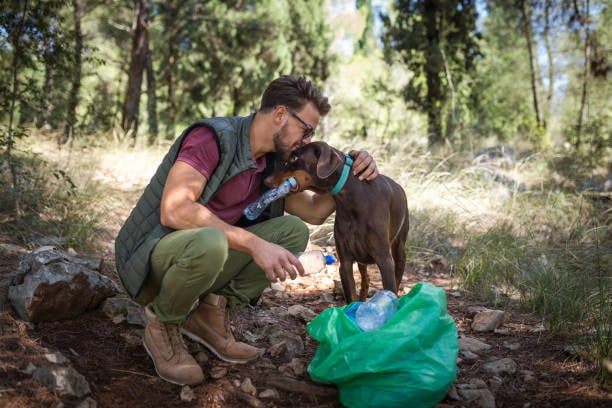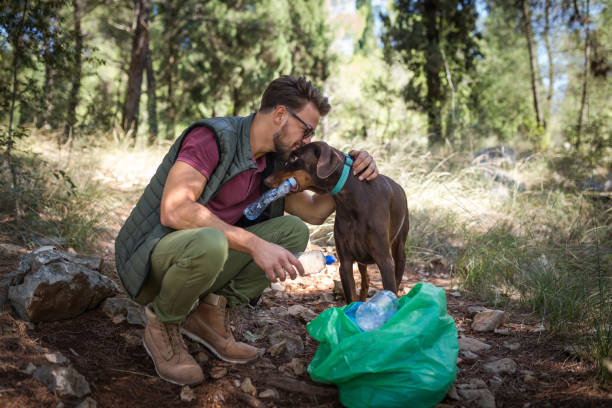In an era where sustainability is not just a choice but a necessity, incorporating eco-friendly practices into every aspect of our lives, including how we care for our furry friends, has become imperative. The pet-care industry, particularly dog care, is no exception. By adopting greener practices, dog owners and pet-care businesses can significantly reduce their environmental footprint while ensuring the health and happiness of their pets.
1. Sustainable Pet Products
The market is increasingly flooded with eco-friendly pet products, from biodegradable waste bags to organic, non-toxic grooming products. Choosing sustainable pet products means selecting items made from recycled materials, renewable resources, or are biodegradable. For instance, bamboo-based pet bowls, hemp dog collars, and toys made from recycled materials are excellent choices for environmentally conscious pet owners.
2. Eco-Friendly Grooming
Traditional pet grooming products can contain chemicals harmful to the environment and your dog's health. Opting for organic, vegan, or cruelty-free shampoos and conditioners ensures that you're not washing harmful chemicals down the drain. Additionally, conserving water during baths and using biodegradable grooming products can make a substantial difference in reducing your ecological paw print.
3. Responsible Waste Management

One of the most significant environmental impacts of pet ownership is waste management. Biodegradable waste bags offer a solution to the problem of plastic bags that take centuries to decompose. Composting pet waste is another eco-friendly practice, although it should be done correctly to avoid health risks.
4. Natural and Organic Dog Foods
The pet food industry has a considerable environmental impact, from the resources used in production to the packaging. Feeding your dog organic and natural foods from ethical, sustainable sources can reduce this impact. Moreover, consider brands that use eco-friendly packaging or, better yet, buy in bulk to reduce waste.
5. Spaying and Neutering
While not immediately obvious, spaying and neutering pets is an eco-friendly practice. It helps control the pet population, reducing the number of animals that end up in shelters or as strays, thereby minimizing the environmental impact associated with stray populations and animal care facilities.
6. Adoption and Rescue

Adopting or rescuing a dog instead of buying one from a breeder is an inherently eco-friendly choice. It reduces the demand for commercially bred pets and gives a home to an animal that might otherwise live in a shelter.
7. Energy-Efficient Pet-Care Facilities
For pet-care businesses, using energy-efficient lighting, heating, and cooling systems can significantly reduce the facility's carbon footprint. Installing solar panels, using eco-friendly cleaning products, and ensuring efficient waste disposal are other ways businesses can contribute to a healthier planet.
8. Green Spaces and Eco-Friendly Exercise

Choosing to walk or play with your dog in local parks or green spaces not only benefits your pet's physical and mental health but also encourages a connection with nature. Using eco-friendly toys made from natural materials or repurposed items adds an extra layer of environmental responsibility to playtime.
Embracing eco-friendly practices in dog care is about making conscious choices that benefit our planet and our pets. It starts with simple steps: choosing sustainable products, adopting eco-friendly grooming habits, being mindful of waste, and supporting ethical and sustainable pet-care businesses. As we strive to live more sustainably, let's not forget the impact our four-legged friends have on the environment and what we can do to minimize it. Together, we can ensure a healthier, happier world for ourselves and our furry companions.
Subscribe to the Gingr Blog






